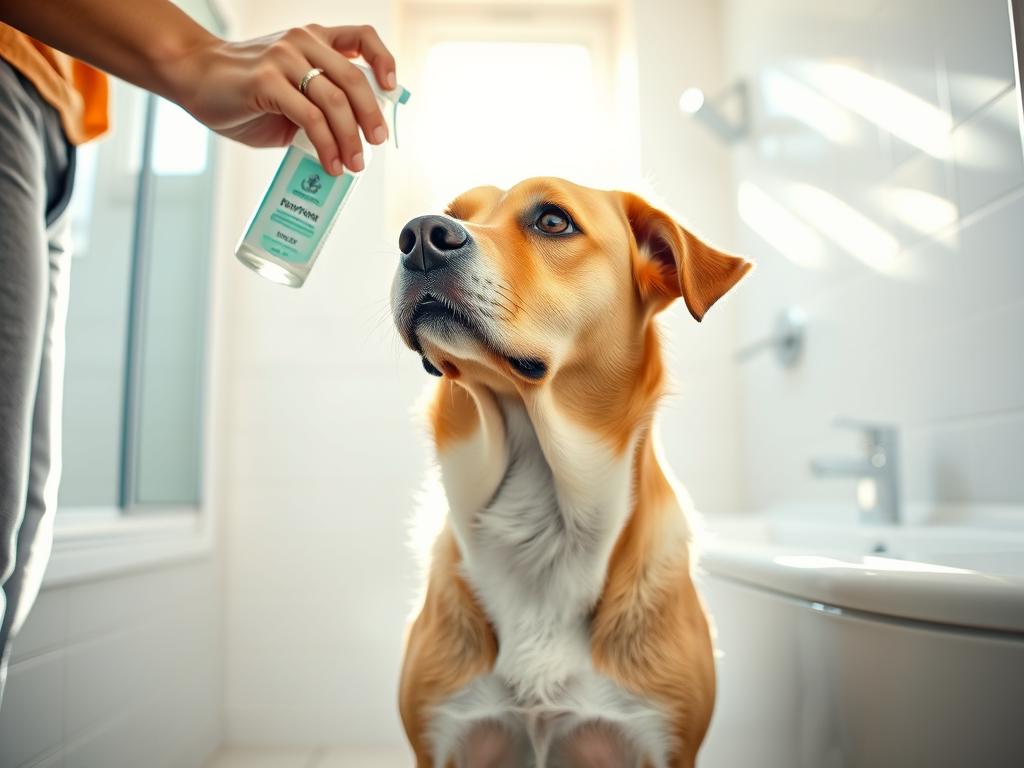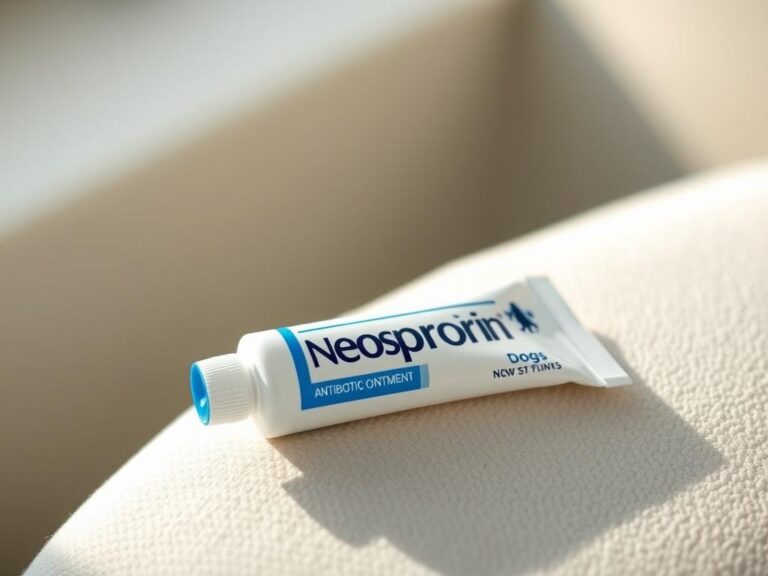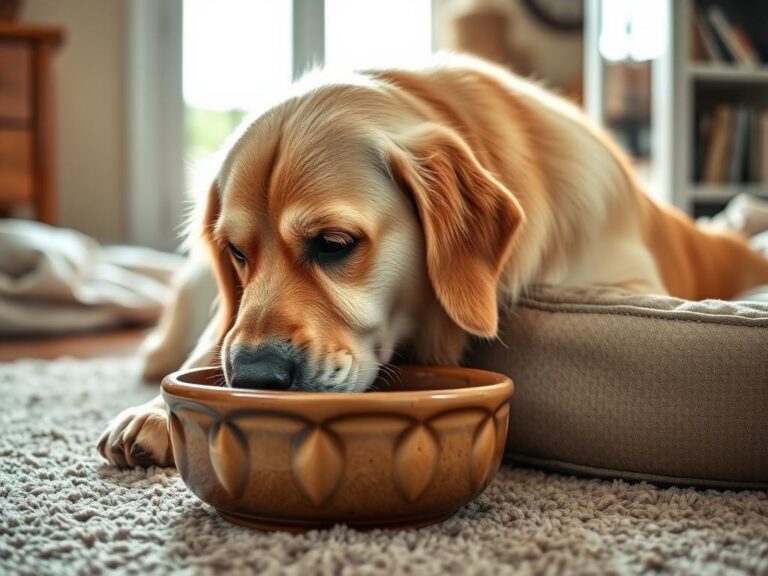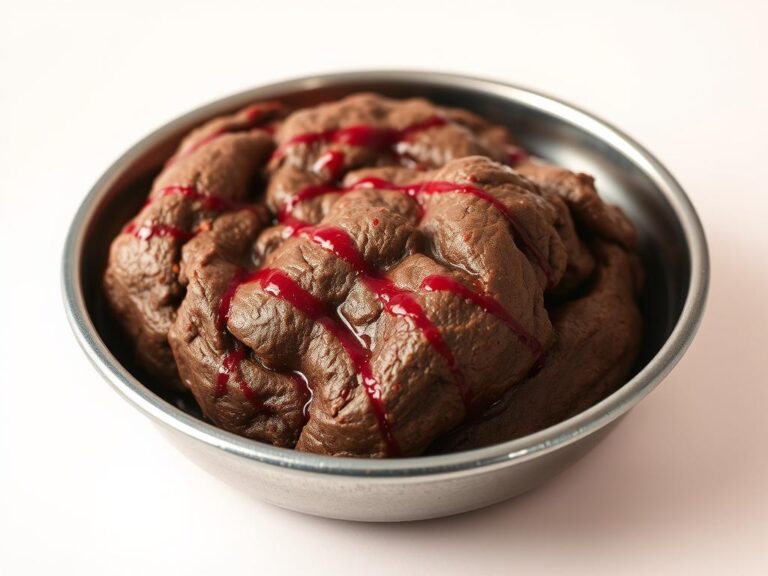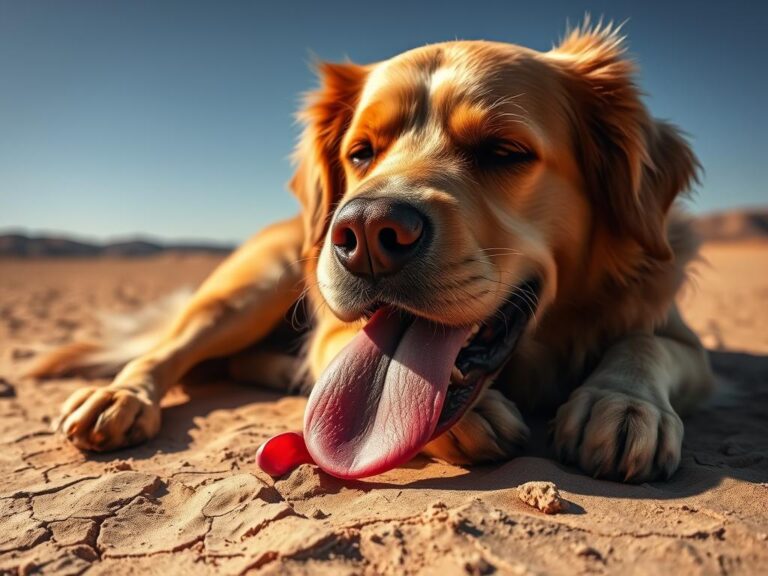How to Get Rid of Fishy Smell from Dog
Dog owners often face the embarrassing issue of their pets emitting a fishy smell. This unpleasant odor can be a sign of underlying health issues that need attention. The smell can be due to various factors, including diet, health conditions, or poor grooming.
Addressing this issue is crucial not only for the comfort of the dog but also for the owners who want to eliminate the odor. Using probiotics like Mokai Vital Probiotic can be beneficial as it improves digestion and reduces digestive issues that may contribute to the smell.
Understanding the causes and finding effective solutions is key. This article will explore the common causes of fishy smells in dogs and provide practical tips on how to eliminate them, ensuring a fresher and healthier environment for both dogs and their owners.
Why Your Dog Smells Fishy: Common Causes
A fishy smell from your dog can be alarming, but identifying the root cause is the first step towards a solution. The odor can be due to various factors, ranging from health issues to environmental influences.
Anal Gland Issues and Expression
One common cause of a fishy smell in dogs is anal gland issues. Anal glands, or sacs, are located on either side of your dog’s anus and contain a pungent liquid used for marking territory. When these glands become impacted or infected, they can cause a strong, fishy odor. Regular expression of these glands by a veterinarian or groomer can help prevent such issues.
Symptoms of anal gland issues include:
- Scooting or dragging their rear on the ground
- Licking or biting at the anal area
- Swelling or redness around the anus
Diet-Related Odors and Food Allergies
Your dog’s diet can significantly impact their body odor. Certain ingredients in their food can cause allergic reactions or sensitivities, leading to skin issues and a fishy smell. Common culprits include low-quality protein sources, fillers, and by-products. Switching to a high-quality, balanced diet can help alleviate these issues.
Foods that may help reduce odor:
- Foods rich in omega-3 fatty acids
- Novel protein sources like venison or salmon
- Diets with limited ingredients to reduce allergy risks
| Dietary Change | Potential Benefit |
|---|---|
| Increasing omega-3 intake | Reduces inflammation and improves skin health |
| Switching to novel protein sources | Reduces the risk of food allergies |
| Avoiding fillers and by-products | Minimizes the risk of adverse reactions |
Environmental Factors: Swimming and Rolling
Environmental factors can also contribute to a fishy smell in dogs. Swimming in dirty or algae-filled waters can cause your dog to absorb odorous substances through their coat. Similarly, rolling in smelly substances like dead fish or other animals can directly transfer the odor to their fur.
- Rinse your dog thoroughly after swimming in potentially dirty waters
- Keep an eye on your dog during walks to prevent rolling in smelly substances
- Regularly clean your dog’s bedding and living areas
Effective Bathing Techniques to Remove Fishy Odor
To get rid of the fishy odor from your dog, effective bathing techniques are essential. Bathing is a crucial step in maintaining your dog’s hygiene and freshness. A well-structured bathing routine can significantly reduce unpleasant odors.
Choosing the Right Dog Shampoo for Odor Control
Selecting the appropriate dog shampoo is vital in controlling and eliminating odors. Look for shampoos specifically formulated for odor control, as they often contain ingredients that help neutralize smells. “A good shampoo can make all the difference in keeping your dog smelling fresh,” says dog grooming experts.
When choosing a shampoo, consider your dog’s skin type and any allergies they may have. Hypoallergenic shampoos are a good option for sensitive dogs. Additionally, shampoos with natural ingredients like tea tree oil or lavender can be beneficial due to their deodorizing properties.
Step-by-Step Bathing Process for Maximum Effectiveness
To maximize the effectiveness of your dog’s bath, follow a step-by-step process:
- Brush your dog’s coat before the bath to remove tangles and mats.
- Use lukewarm water to wet your dog’s coat thoroughly.
- Apply the chosen shampoo, lathering it well into the coat.
- Rinse your dog thoroughly to remove all soap residue.
- Repeat the shampooing process if necessary.
Ensuring a thorough rinse is crucial to prevent soap buildup, which can lead to further irritation and odor.
Drying Methods That Help Eliminate Odors
Drying your dog properly after a bath is just as important as the bath itself. Use a towel to gently pat your dog dry, paying extra attention to areas prone to moisture retention. For some dogs, using a blow dryer on a low setting can help dry the coat more thoroughly, but be cautious not to overheat your dog.
How Often to Bathe a Smelly Dog
The frequency of bathing a smelly dog depends on several factors, including the dog’s breed, lifestyle, and the severity of the odor. Generally, bathing once a week is sufficient, but some dogs may require more frequent bathing. However, over-bathing can strip the coat of its natural oils, leading to dryness and potentially more odor. “Finding the right balance is key,” according to veterinary advice.
How to Get Rid of Fishy Smell from Dog: Professional Solutions
When your dog’s fishy smell persists despite your best efforts, it may be time to seek professional help. Sometimes, the odor can be a sign of an underlying health issue that requires the attention of a veterinarian or a professional groomer.
When to Visit the Veterinarian for Odor Issues
If your dog’s fishy smell is accompanied by other symptoms such as itching, redness, or discharge, it’s crucial to visit a veterinarian. These symptoms could indicate an infection or allergy that needs medical attention. A veterinarian can perform diagnostic tests to determine the cause of the odor and recommend appropriate treatment.
For instance, if your dog has anal gland issues, a veterinarian can express the glands or provide medication to alleviate the problem. Regular check-ups can also help prevent future odor issues.
Professional Grooming Services and Treatments
Professional groomers offer a range of services that can help eliminate fishy smells from dogs. These services include:
- Medicated baths to soothe skin irritations and reduce odor
- De-shedding treatments to minimize the risk of skin infections
- Nail trimming and ear cleaning to prevent bacterial buildup
Some groomers also offer specialized treatments like omega-3 supplements for skin health, which can help reduce odor-causing conditions.
Veterinary Treatments for Persistent Odors
In some cases, persistent odors may require veterinary treatments. These can include antibiotics for bacterial infections, antifungal medications for yeast infections, or anti-inflammatory drugs for skin allergies.
Veterinarians may also recommend dietary changes or supplements to address underlying issues contributing to the odor. For example, a dog with food allergies may benefit from a hypoallergenic diet.
By seeking professional help, you can identify and address the root cause of your dog’s fishy smell, ensuring a healthier and happier pet.
Natural Remedies and Home Solutions
Natural remedies offer a gentle and non-invasive way to tackle fishy odors in dogs. Many pet owners prefer these methods as they can be less harsh on their dog’s skin and overall health.
Apple Cider Vinegar Rinses and Applications
Apple cider vinegar is a popular natural remedy for dog odor. It can be used as a rinse after bathing to help balance the skin’s pH and reduce bacteria that cause odor. To use, mix 1 part apple cider vinegar with 1 part water and rinse your dog thoroughly.
Baking Soda Treatments for Dog Odor
Baking soda is another effective natural remedy for absorbing and neutralizing odors. It can be used as a dry shampoo or added to your dog’s bath water. For a dry shampoo, sprinkle baking soda on your dog’s coat, rub it in, and then brush out. For a bath, add 1 cup of baking soda to the water.
Coconut Oil Benefits for Skin and Odor
Coconut oil is known for its antimicrobial properties, making it beneficial for reducing bacteria that cause odor. It can be applied topically to the skin or added to your dog’s food. Start with a small amount (about 1 teaspoon per 10 pounds of body weight) and gradually increase as needed.
Essential Oils Safe for Dogs (Diluted)
Certain essential oils, when diluted properly, can be safe for use on dogs. Oils like lavender and tea tree oil have antimicrobial properties that can help reduce odor. Always dilute essential oils with a carrier oil (like coconut or olive oil) at a ratio of 1% essential oil to 99% carrier oil.
| Remedy | Application | Benefits |
|---|---|---|
| Apple Cider Vinegar | Rinse after bathing | Balances skin pH, reduces bacteria |
| Baking Soda | Dry shampoo or bath additive | Absorbs and neutralizes odors |
| Coconut Oil | Topical or dietary supplement | Antimicrobial properties |
| Essential Oils | Diluted topical application | Antimicrobial properties |
Preventing Fishy Odors in Dogs
Maintaining a fresh-smelling dog involves more than just occasional baths; it requires consistent grooming, nutrition, and environmental management. By incorporating these practices into your daily routine, you can significantly reduce the likelihood of fishy odors.
Regular Grooming and Brushing Routines
Regular grooming is essential for preventing fishy odors in dogs. Brushing your dog’s coat regularly helps to distribute skin oils, reducing the buildup of bacteria and yeast that can cause unpleasant smells. For more information on how to properly groom your dog, you can visit Earthrated’s guide on eliminating fishy smells.
Brushing Tips: Use a brush suitable for your dog’s coat type, and brush in the direction of the hair growth to avoid causing irritation.
Proper Nutrition and Omega Supplements
A well-balanced diet plays a crucial role in maintaining your dog’s overall health and preventing fishy odors. Omega-3 fatty acids, in particular, are known to support skin health and reduce inflammation, which can contribute to fresher breath and body odor.
- Feed high-quality dog food rich in omega-3 fatty acids.
- Consider adding supplements after consulting with your veterinarian.
Environmental Management and Bedding Care
Your dog’s environment also plays a significant role in preventing fishy odors. Regularly washing your dog’s bedding and toys can help reduce bacterial and yeast buildup. Ensure your dog’s living areas are clean and dry to prevent moisture accumulation, which can exacerbate odor issues.
Tips for Bedding Care: Wash bedding in hot water at least once a week, and dry thoroughly to prevent dampness.
Conclusion
Eliminating the fishy smell from your dog requires a comprehensive approach that includes proper dog grooming, a balanced diet, and regular veterinary check-ups. By understanding the common causes of fishy odors, such as anal gland issues, diet-related odors, and environmental factors, you can take the first step towards a fresher-smelling dog.
Effective bathing techniques, professional grooming services, and natural remedies like apple cider vinegar rinses and coconut oil treatments can help get rid of the fishy smell. Regular grooming routines, proper nutrition, and environmental management are key to preventing odors from developing in the first place.
By following the strategies outlined in this article, you can help your dog stay fresh and healthy. Regular dog grooming is essential to maintaining your dog’s overall health and hygiene. With the right techniques and a little patience, you can say goodbye to the fishy smell and enjoy a cleaner, healthier relationship with your pet.
